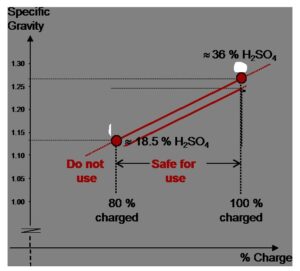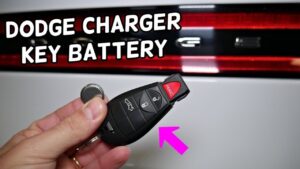Do garage doors have batteries? Yes, they do! If you’ve ever found yourself in a situation where your garage door won’t open or close, and you’re wondering why, a dead battery could very well be the culprit. Garage door openers are equipped with batteries that play a crucial role in their functioning. In this article, we’ll delve into the importance of these batteries, how they work, and what you can do to ensure they are in optimal condition. So, let’s unravel the mystery behind garage door batteries and empower you with the knowledge to keep your garage door operating smoothly.
Do Garage Doors Have Batteries?
Garage doors are an essential part of our everyday lives, providing security and convenience to homeowners. Many people wonder if garage doors have batteries and if so, what their purpose is. In this article, we will explore the topic of garage door batteries in detail, answering common questions and addressing important subtopics.
Understanding the Role of Batteries in Garage Doors
Garage doors primarily operate using electricity from your home’s power supply. However, they often incorporate batteries as a backup power source or to power specific components. Let’s dive deeper into the various roles batteries play in garage doors:
Backup Power Source
1. During Power Outages: In the event of a power outage, having a backup power source is crucial to continue operating your garage door smoothly. Garage door opener systems equipped with battery backup can ensure uninterrupted access to your garage, allowing you to enter or exit even during power failures.
2. Battery Backup Systems: Some garage door openers come with built-in battery backup systems. These systems activate automatically when the power goes out, ensuring that you can open or close your garage door without any inconvenience. Battery backup systems typically provide power for a limited number of operations before needing to be recharged or replaced.
Powering Components
1. Remote Control: Most garage doors use wireless remote controls to open and close them from a distance. These remotes rely on batteries to function correctly. A typical garage door remote uses a small coin or button cell battery, which can last for several months or even years before needing replacement.
2. Wall Control Panel: The wall control panel mounted inside your garage also requires batteries to operate. It allows you to open and close the garage door from inside the garage without using a remote. The batteries in the wall control panel are usually AAA or AA batteries, which can last for an extended period before requiring replacement.
Types of Batteries Used in Garage Doors
Now that we understand the roles batteries play in garage doors, let’s explore the different types of batteries commonly used:
Backup Power Source Batteries
1. Sealed Lead-Acid (SLA) Batteries: SLA batteries are often used as the backup power source in garage doors. They are reliable and can provide sufficient power during an outage. These batteries are rechargeable and typically last for several years before needing replacement. SLA batteries come in various sizes and capacities to suit different garage door opener systems.
Component Power Batteries
1. Coin Cell Batteries: Coin cell batteries are commonly found in garage door remotes. They are small, flat, and round in shape, resembling a coin, hence the name. These batteries are compact and offer long-lasting power for the remote control.
2. AAA or AA Batteries: The wall control panel inside your garage typically uses AAA or AA batteries. These batteries are widely available and can be easily replaced when needed. AAA and AA batteries are known for their longevity and provide sufficient power for the control panel’s operation.
Maintaining Garage Door Batteries
Like any other battery-powered device, proper maintenance is essential to ensure the longevity and optimal performance of garage door batteries. Here are some tips to help you maintain your garage door batteries effectively:
Backup Power Source Batteries
– Regularly check the battery’s condition through the battery status indicator on your garage door opener system (if available).
– If your garage door opener system utilizes a sealed lead-acid battery, ensure it is adequately charged by following the manufacturer’s instructions.
– Replace the backup battery within the recommended timeframe specified by the manufacturer. This helps ensure it will provide power during a power outage when needed.
Component Power Batteries
– Keep track of the battery life in your remote control and wall control panel. Replace the batteries promptly when their power level becomes low.
– Clean the battery contacts inside the remote control or control panel periodically to prevent corrosion, which can affect battery performance.
– Store spare batteries in a cool and dry place, away from direct sunlight, extreme temperatures, or moisture.
In conclusion, garage doors do have batteries, primarily serving as a backup power source during outages and to power components such as remote controls and wall control panels. Understanding the role of these batteries and properly maintaining them is crucial for uninterrupted functionality and convenience. By being aware of battery types and maintenance tips, you can ensure your garage door remains operational and reliable.
Frequently Asked Questions
Do garage doors have batteries?
Yes, some garage doors do have batteries. These batteries are typically used as backup power sources in case of a power outage.
How do garage door batteries work?
The batteries for garage doors are usually connected to a backup power system or a built-in battery backup in the garage door opener. When there is a power outage, the batteries automatically take over and provide power for the garage door to operate.
What types of batteries are used for garage doors?
The specific type of battery used for garage doors can vary depending on the manufacturer and model of the garage door opener. However, some common types of batteries used include lead-acid, lithium-ion, and nickel-metal hydride (NiMH) batteries.
How long do garage door batteries last?
The lifespan of garage door batteries can vary from a few years to several years, depending on factors such as usage frequency, battery quality, and environmental conditions. It’s recommended to check the manufacturer’s instructions or consult a professional to determine the expected lifespan of a specific battery.
Can I replace the garage door battery myself?
Yes, in most cases, you can replace the garage door battery yourself. However, it’s important to follow the manufacturer’s instructions and safety precautions when replacing the battery. If you are unsure or uncomfortable with the process, it’s best to contact a professional technician to handle the replacement for you.
What should I do if my garage door battery needs replacement?
If you notice that your garage door battery is no longer holding a charge or needs replacement, you should first consult the manufacturer’s instructions for the specific steps to replace the battery. If you are unsure or need assistance, it’s recommended to contact a professional garage door technician who can guide you through the process or handle the replacement for you.
Final Thoughts
Garage doors do not typically have batteries as their primary source of power. Instead, they are usually connected directly to the electrical system of the house or building. However, in case of a power outage, some garage door openers come with a backup battery system. This allows the door to still function and be opened or closed manually during power interruptions. So, while garage doors themselves do not have batteries, certain openers may have a battery backup feature to ensure continued operation. Overall, it is important to check the specifications of your specific garage door opener to determine if it has a battery backup option.



